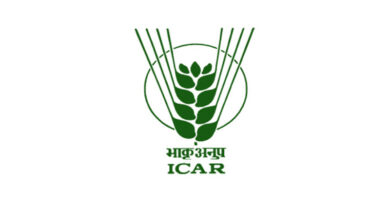
Indo-UK Trade Deal: What Concerns Indian Farmers?
Report by Jag Mohan Thaken
30 July 2025, Chandigarh: The governments of India and the UK signed a Comprehensive Economic and Trade Agreement (CETA) on 24 July 2025. The BJP-led Modi government has gone so far as to claim that CETA will greatly benefit Indian farmers.
The All India Kisan Sabha (AIKS), the largest federation of Indian farmers’ unions, states that media reports based on official statements have generated strong expectations that CETA will lead to robust economic growth in both slowing economies.
However, AIKS fears that past experiences show that the benefits of such deals are usually cornered by a few large players in the economy. For smaller players, the potential gains depend heavily on their capacity, cost competitiveness, and readiness to seize the so-called “new opportunities.” The opportunity for enhanced trade due to the removal of tariff barriers across various product lines depends on extensive and coordinated actions by the Indian government to improve competitiveness through modern infrastructure and the facilitation of technology absorption.
Therefore, AIKS is demanding the suspension of the Indo-UK FTA – CETA – due to fears of domination by foreign agri-businesses in domestic trade. The organization warns that the agreement will intensify the already severe agrarian crisis, much like the ASEAN FTA, which devastated natural rubber farmers in Kerala.
The farmers’ union alleges that the Modi government has undermined the competitiveness of Indian farmers, arguing that the benefits of agricultural exports will primarily go to large corporations and crony capitalists like Adani and Ambani.
AIKS further states that the Modi government’s policies are, in fact, contradictory to the objectives of inclusive growth. By denying farmers a remunerative minimum support price, keeping small and marginal farmers deeply indebted, withdrawing subsidies on inputs, and allowing rising production costs to erode profitability, the government has weakened the agricultural sector. Moreover, by curtailing public investment in agri-infrastructure, encouraging corporate control over agricultural land and markets, and failing to build an efficient supply chain, the government has damaged farmers’ competitiveness. In contrast, it has selectively benefited corporate entities like Adani in the agri-sector. As a result, any potential benefits from CETA are likely to be monopolized by large corporations, further marginalizing small farmers. The celebratory tone around signing such a deal diverts attention from the hard challenges ahead. CETA alone is not a solution for India’s vast and complex agricultural sector.
The Rubber Example and Tariff Concerns
Citing an example of tariff reduction, AIKS warns that reducing tariffs on exports does not guarantee better prices for domestic farmers. The India-ASEAN agreement of 2011 devastated Kerala’s rubber sector. The price of raw rubber sheets crashed from ₹240 per kg to just ₹70 per kg in 2011 and remained stagnant around ₹110 for more than a decade. This price crash caused an annual loss of ₹7,840 crore to Kerala’s rubber farmers. Production dropped from 9.5 lakh tonnes to 5.5 lakh tonnes during the same period. While ASEAN countries took advantage of preferential access to the Indian market, India was unable to boost its exports. As a result, the trade gap widened significantly.
What Is AIKS Worried About?
In a press release dated 29 July 2025, AIKS expressed concern that the UK primarily exports processed and value-added goods derived from primary agricultural products. The list of products slated for tariff phase-outs does not bode well for India. It includes a wide range of manufactured goods and vehicles, many of which are luxury items consumed by India’s wealthy. As a result, imports from the UK are likely to rise, without a corresponding increase in Indian exports due to a lack of competitiveness. The FTA could flood Indian markets with processed foods while draining raw agricultural goods to the UK—thus affecting domestic agriculture and industry and paving the way for new forms of economic colonization.
The union also fears that Western countries, including the UK, frequently use non-tariff barriers to block or delay agricultural imports from countries like India. These standards are often applied arbitrarily and to the West’s advantage. If this continues, any potential gains from CETA could quickly turn into net losses for India. It’s worth noting that agricultural trade between India and the UK is a minuscule part of their overall trade relationship, with Indian agricultural imports accounting for less than 1% of the UK’s total imports. While agriculture is a major concern for India, the same cannot be said for the UK.
AIKS argues that for over three decades, advocates of trade liberalization have promoted the false hope that export opportunities will benefit Indian farmers. CETA, it claims, is another step in this misleading narrative. Experience has shown that this is little more than propaganda, used to justify opening Indian markets to agricultural imports from developed countries. The evidence lies in India’s rising import dependence for edible oils, pulses, fruits, rubber, and more.
Even though some bilateral trade deals exclude core Indian agricultural products in initial negotiations, the risk they pose should not be underestimated. Once implemented, such deals often expand to cover more products. This “hidden chronology” must be understood. Initial terms may appear benign as a strategy to reduce political opposition, which seems to be the case with CETA and the deal being negotiated with the US. These agreements carry dangers that extend beyond their stated terms and can provide developed countries with access to large, lucrative markets like India’s.
The Indo-UK FTA could expose India’s economy to the uncertainties of global trade and speculation, worsening the agrarian crisis and giving foreign agri-businesses greater control over domestic markets.
Why Are WTO Rates More Favorable to India?
AIKS points out that India’s WTO-bound tariff rates for agricultural products are relatively high, offering a degree of protection. WTO negotiations are based on these bound rates. However, the India-UK FTA uses applied tariff rates—typically much lower than bound rates—as the starting point for tariff reductions. This issue also arose in the India-ASEAN FTA. Starting tariff cuts from applied rates puts India at a disadvantage. Developing countries, including India, fought hard in WTO negotiations to retain high bound rates for agriculture, and bypassing them undermines that effort.
AIKS argues that the weakening of multilateralism and increased pressure from developed countries to sign bilateral deals must be resisted. Rather than aligning with other developing countries to maintain a rules-based multilateral trade system, the Modi government has succumbed to these pressures. AIKS urges all political parties to demand the immediate suspension of the Indo-UK FTA.
Will Slow Agricultural Export Growth Concern the BJP Government?
The BJP-led government often boasts of high growth in every sector, frequently comparing its performance with that of the previous Congress administration. But will the slow growth in agricultural exports over its 10-year tenure be a cause for concern?
During the Congress government (2003–04 to 2013–14), agricultural exports rose from $7.5 billion to $43.3 billion—an increase of 477%. In contrast, under the BJP’s 10-year rule, agricultural exports have increased only about 20%, from $43.3 billion to around $52 billion, according to The Indian Express, a leading national daily.
In an editorial titled “Carry It Forward”, The Indian Express argues that India needs a farm trade policy based not on import protection but on expanding and diversifying exports. Between 2003–04 and 2013–14, India created new markets for products like basmati rice, buffalo meat, frozen shrimp, guar gum, chillies, and seed spices. Since then, export growth has stagnated. Worse still, the government has often imposed export restrictions—on rice, wheat, sugar, and onions—at the slightest hint of a domestic shortage.
The paper notes that while CETA marks a positive shift, with India gaining duty-free access to UK markets for seafood, processed foods, spices, fruits, and vegetables, this should be the model moving forward. Instead of relying on defensive strategies to protect imports, India must adopt a confident and proactive export-oriented approach in its trade deals—with the UK and other countries like the US.
📢 If You’re in Agriculture, Make Sure the Right People Hear Your Story.
From product launches to strategic announcements, Global Agriculture offers unmatched visibility across international agri-business markets. Connect with us at pr@global-agriculture.com to explore editorial and advertising opportunities that reach the right audience, worldwide.






